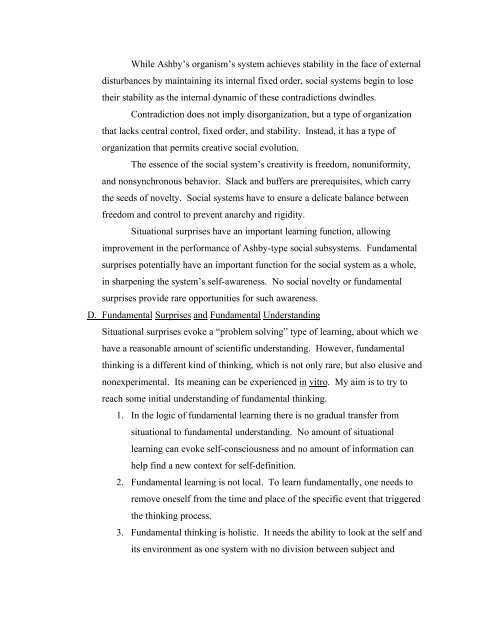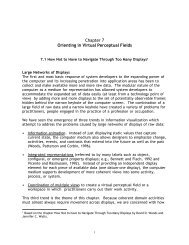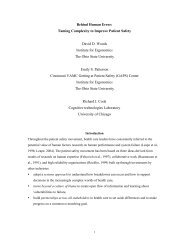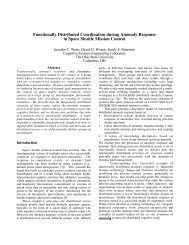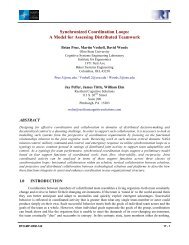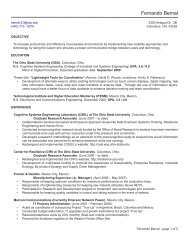Fundamental Surprises Zvi Lanir Decision Research 1201 Oak ...
Fundamental Surprises Zvi Lanir Decision Research 1201 Oak ...
Fundamental Surprises Zvi Lanir Decision Research 1201 Oak ...
- No tags were found...
Create successful ePaper yourself
Turn your PDF publications into a flip-book with our unique Google optimized e-Paper software.
While Ashby’s organism’s system achieves stability in the face of external<br />
disturbances by maintaining its internal fixed order, social systems begin to lose<br />
their stability as the internal dynamic of these contradictions dwindles.<br />
Contradiction does not imply disorganization, but a type of organization<br />
that lacks central control, fixed order, and stability. Instead, it has a type of<br />
organization that permits creative social evolution.<br />
The essence of the social system’s creativity is freedom, nonuniformity,<br />
and nonsynchronous behavior. Slack and buffers are prerequisites, which carry<br />
the seeds of novelty. Social systems have to ensure a delicate balance between<br />
freedom and control to prevent anarchy and rigidity.<br />
Situational surprises have an important learning function, allowing<br />
improvement in the performance of Ashby-type social subsystems. <strong>Fundamental</strong><br />
surprises potentially have an important function for the social system as a whole,<br />
in sharpening the system’s self-awareness. No social novelty or fundamental<br />
surprises provide rare opportunities for such awareness.<br />
D. <strong>Fundamental</strong> <strong>Surprises</strong> and <strong>Fundamental</strong> Understanding<br />
Situational surprises evoke a “problem solving” type of learning, about which we<br />
have a reasonable amount of scientific understanding. However, fundamental<br />
thinking is a different kind of thinking, which is not only rare, but also elusive and<br />
nonexperimental. Its meaning can be experienced in vitro. My aim is to try to<br />
reach some initial understanding of fundamental thinking.<br />
1. In the logic of fundamental learning there is no gradual transfer from<br />
situational to fundamental understanding. No amount of situational<br />
learning can evoke self-consciousness and no amount of information can<br />
help find a new context for self-definition.<br />
2. <strong>Fundamental</strong> learning is not local. To learn fundamentally, one needs to<br />
remove oneself from the time and place of the specific event that triggered<br />
the thinking process.<br />
3. <strong>Fundamental</strong> thinking is holistic. It needs the ability to look at the self and<br />
its environment as one system with no division between subject and


